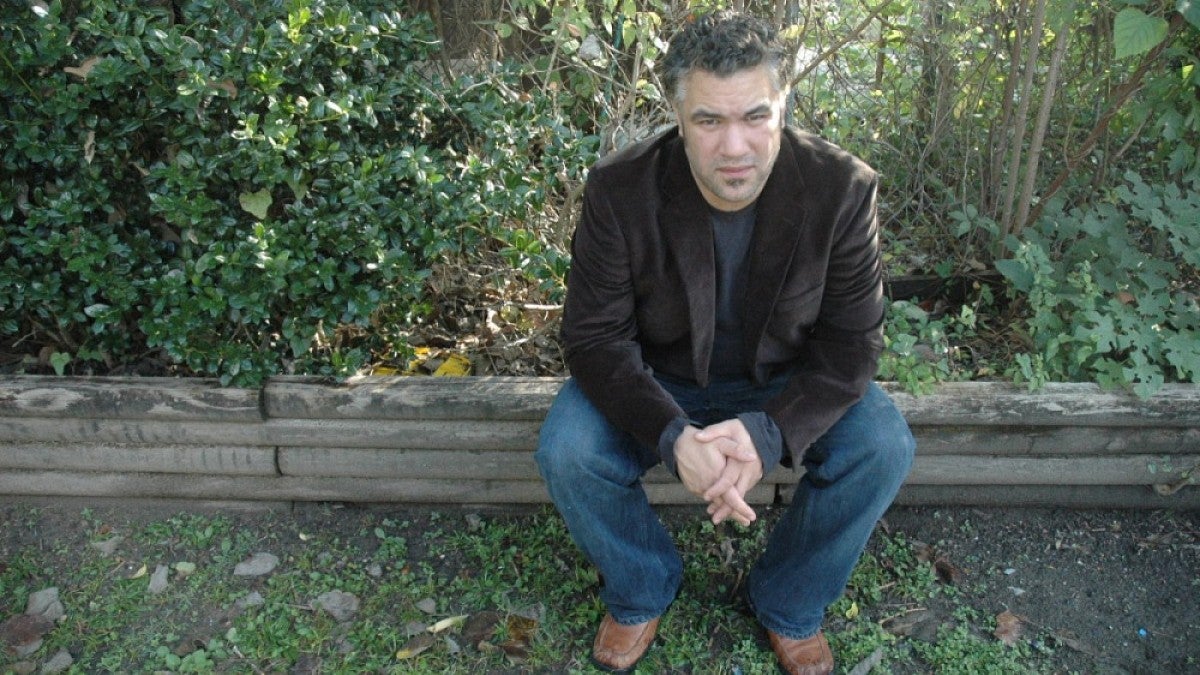Mat Johnson, a professor in the Creative Writing Program in the College of Arts and Sciences, is the UO’s newest Philip H. Knight Chair.
Johnson joined the UO faculty in 2018 after a decade teaching at the University of Houston’s creative writing program. His published works include the novels “Loving Day,” winner of the 2016 American Book Award; “Pym” (2011); “Hunting in Harlem” (2003); and “Drop” (2000); and graphic novels “Incognegro” (2008) and “Dark Rain” (2010). He teaches in the comics and cartoon studies minor in the Department of English.
Johnson’s writing “addresses comtemporary race and social issues with wicked humor,” as described by the United States Artists organization, which awarded Johnson its James Baldwin Fellowship in 2007.
“Mat is a nationally recognized author, as well as a superb teacher, who brings a breadth of experience and perspective directly to our students,” said Provost and Senior Vice President Patrick Phillips. “He has a very broad and exciting vision for how creative writing can connect across multiple areas of the university. It is a vision built upon his own success and his work at the front lines of the rapidly changing media landscape that we are currently experiencing. He is a great exemplar of how Knight professors are both truly outstanding in their field and committed to making the UO, as a whole, a stronger institution.”
The Philip H. Knight chairs were endowed in 1995 with a $15 million gift from Penny and Phil Knight. The program is designed to help the UO retain star faculty members.
The gift for endowed chairs requires matching funds from other donors and has led to more than 30 such positions. The last Knight appointments were Idit Shner and Bettina Cornwell in 2020. Schner is a professor of saxophone and Cornwell is a professor of marketing.
“The Knight chair allows the UO to show the larger state and academic landscape what we mean as an institution, and what we value,” said Johnson, who is African American. “We are all part of this larger thing that we call University of Oregon, and group identity is important, particularly in really tough times like last year.”
Though 2020 disrupted many aspects of academic life, it also afforded Johnson some opportunities to work remotely on screenwriting projects he’s had to turn down in the past. He hopes to use that experience to weave screenwriting into his teaching.
Johnson also finished a new novel and anticipates it will publish in fall 2022. Called “The Invisible Things,” it's about an imaginary colony on the moon of Europa populated by everyone who's been kidnapped by aliens over the last 400 years.
“And really, it's a story about America and partisanship,” he said, “and our ability to not see things just because our partisan understanding of the world won’t let us.”
Johnson credits his talented writing students with giving him purpose in his role as an educator and keeping him grounded amid his own publishing and screenwriting career.
“Teaching and mentoring is what makes me stay on campus and care about that as part of my future,” Johnson said. “My students are more than a job, they’re a calling, and I can’t imagine my life without them.”
—By Anna Glavash, University Communications


